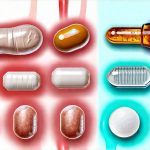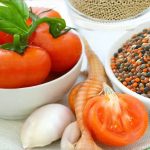A happy bladder is often an overlooked component of overall well-being, yet its impact on daily life can be substantial. Many people experience issues ranging from mild urgency to more disruptive frequency and discomfort, often without understanding how their dietary choices play a crucial role. While medical conditions certainly necessitate professional treatment, for many, simple adjustments to what we eat and drink can significantly improve bladder health and reduce bothersome symptoms. This article aims to provide practical, evidence-informed diet tips designed not to cure bladder issues, but rather to support optimal function and minimize irritation, ultimately contributing to a more comfortable and confident life.
It’s important to acknowledge that everyone’s body is different. What triggers bladder sensitivity in one person might not affect another. Therefore, the following recommendations are presented as starting points for exploration and personalization. Paying close attention to your own body’s responses – keeping a food diary can be incredibly helpful – will allow you to identify specific dietary culprits and tailor your approach accordingly. The goal isn’t restrictive dieting but mindful eating that prioritizes bladder-friendly choices while still enjoying a diverse and satisfying diet. Understanding best dietary practices can be the first step towards comfort.
Understanding the Bladder-Diet Connection
The connection between diet and bladder health stems from several factors. Certain foods and beverages contain compounds that can directly irritate the bladder lining, leading to inflammation and increased urgency. Others may influence fluid balance or affect the production of urine, impacting how often we need to visit the bathroom. Furthermore, dietary deficiencies can weaken the overall system, making individuals more susceptible to bladder issues. The bladder is a sensitive organ, and it’s closely linked to the nervous system; what affects your gut health—and therefore your diet—can easily impact bladder function.
It’s also important to understand that bladder irritation isn’t always about avoiding foods entirely. Sometimes, how you consume them matters. For example, sipping fluids throughout the day rather than gulping large amounts at once can reduce pressure on the bladder. Similarly, spreading food intake evenly across meals and snacks may be easier on your system than large, infrequent meals. Identifying these nuances is key to long-term success.
Finally, it’s vital to rule out underlying medical conditions before attributing bladder symptoms solely to diet. Conditions like urinary tract infections, overactive bladder syndrome, or interstitial cystitis require proper diagnosis and treatment from a healthcare professional. Dietary changes can be a supportive element within a comprehensive care plan but shouldn’t replace necessary medical intervention. For those struggling with sensitivity, tips for women are available to help navigate this issue.
Foods & Drinks to Consider – And Those to Moderate
There’s no one-size-fits-all list of “good” and “bad” foods for bladder health, but several common triggers are frequently identified by individuals with sensitive bladders. Highly acidic foods, such as citrus fruits (oranges, lemons, grapefruits), tomatoes and tomato-based products, and vinegar, can often cause irritation. Caffeine and alcohol are well-known diuretics, increasing urine production and potentially exacerbating urgency. Artificial sweeteners, especially those found in diet sodas and sugar-free snacks, have also been linked to bladder sensitivity in some individuals. Spicy foods, while enjoyable for many, can sometimes trigger inflammation and discomfort.
On the flip side, there are several food groups that generally promote bladder health. Water is paramount – staying adequately hydrated helps dilute urine and reduce irritation. Foods rich in potassium (bananas, sweet potatoes, spinach) may help neutralize acidity in the urinary tract. Fiber-rich foods contribute to overall digestive health, which can indirectly benefit bladder function. And certain herbal teas, like chamomile or ginger, offer soothing properties without the diuretic effects of caffeine. It’s important to note that even seemingly “healthy” choices, such as green tea, might cause issues for some due to their mild diuretic effect. Experimentation and mindful observation are crucial. When planning your meals, consider pantry staples that support bladder health.
Identifying Your Personal Triggers
Determining what specifically affects your bladder requires a bit of detective work. A food diary is an incredibly valuable tool. Here’s how to use one effectively:
- Detailed Recording: For at least a week, meticulously record everything you eat and drink, including portion sizes and timing.
- Symptom Tracking: Alongside your dietary entries, note any bladder symptoms you experience – urgency, frequency, pain, discomfort – along with their severity and the approximate time they occurred.
- Correlation Analysis: After a week or two, review your diary to identify potential correlations between specific foods/drinks and symptom flare-ups. Look for patterns: do tomatoes consistently trigger urgency? Does caffeine seem to worsen symptoms in the afternoon?
- Elimination Diet (with caution): If you suspect certain foods are problematic, consider temporarily eliminating them from your diet for a few weeks, then reintroducing them one at a time to assess their impact. Always consult with a healthcare professional before starting an elimination diet.
The Role of Hydration
Adequate hydration is foundational for bladder health. However, it’s not simply about drinking more water; it’s about how you hydrate. Gulping large quantities of fluids at once can overwhelm the bladder and lead to increased urgency. Instead:
- Sip Throughout the Day: Aim to drink small amounts of water consistently throughout the day rather than a few large glasses.
- Avoid Late-Night Fluids: Reduce fluid intake in the hours leading up to bedtime to minimize nighttime trips to the bathroom.
- Monitor Urine Color: Pale yellow urine generally indicates adequate hydration, while dark yellow suggests you need to drink more fluids.
- Consider Electrolyte Balance: In some cases, particularly during hot weather or strenuous activity, replenishing electrolytes can help maintain proper fluid balance and support bladder function.
Beyond Food: Lifestyle Factors
Diet isn’t the only piece of the puzzle when it comes to bladder health. Several lifestyle factors also play a significant role:
- Pelvic Floor Exercises: Strengthening your pelvic floor muscles (through Kegel exercises) can improve bladder control and reduce leakage.
- Regular Exercise: Moderate physical activity promotes overall health and well-being, which indirectly supports bladder function. Avoid high impact activities if these exacerbate symptoms.
- Stress Management: Chronic stress can worsen bladder symptoms. Practice relaxation techniques like deep breathing, yoga, or meditation to manage stress levels.
- Proper Hygiene: Maintaining good hygiene practices – wiping front to back after using the toilet – helps prevent urinary tract infections, which can irritate the bladder.
It’s important to remember that improving bladder health is often a journey of self-discovery and mindful adaptation. There’s no quick fix, but by making informed dietary choices and adopting healthy lifestyle habits, you can significantly enhance your comfort and quality of life – one sip, one bite, and one breath at a time. If traveling, be sure to review safe travel tips before your trip.





















